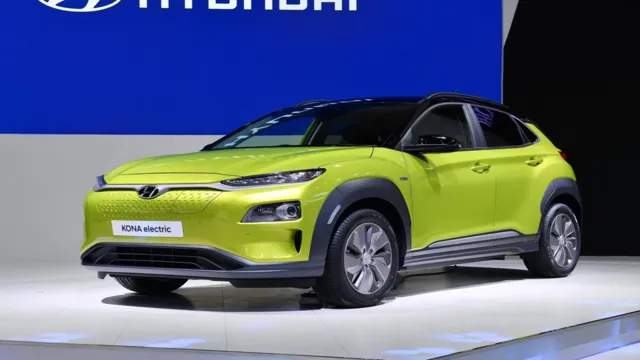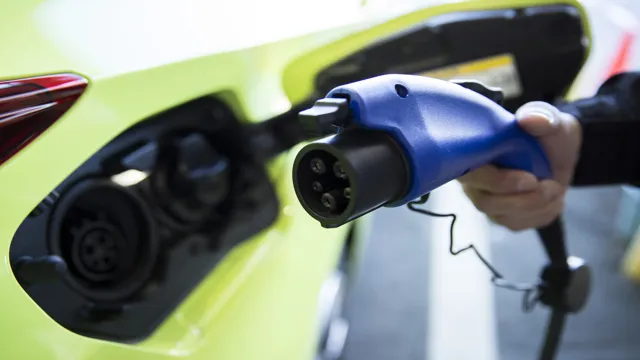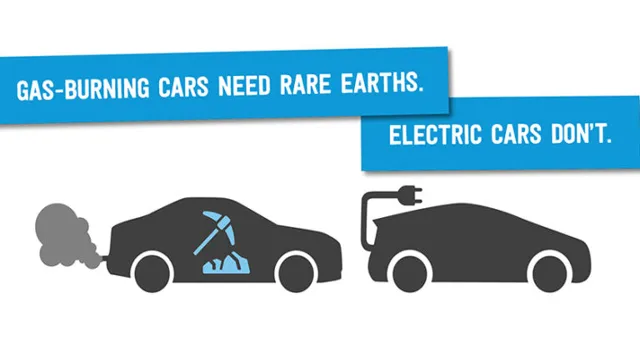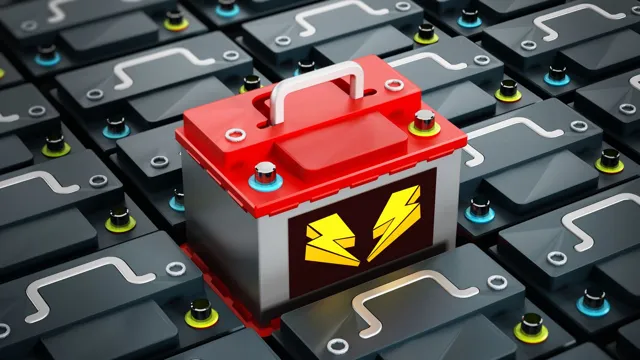The Shocking Truth About Electric Car Battery Costs in India: What You Need to Know
Electric cars are becoming increasingly prevalent in India as people look for environmentally friendly modes of transportation. However, one major concern is the cost of their batteries, often seen as the biggest barrier to wider adoption. In this blog, we will examine in detail the issue of electric car battery cost in India, considering factors such as government policy, demand and supply of batteries, and research and development.
We will also explore potential solutions to this issue and what the future may hold for electric car batteries in India. Whether you are an electric car enthusiast or simply curious about the state of the market, this blog will provide an informative and engaging analysis.
Introduction
The cost of electric car batteries in India has been a topic of much debate and discussion lately. With the increasing demand for eco-friendly vehicles, electric cars have become a popular choice for many Indians. However, the high cost of batteries has been a deterrent for some, as it can account for a significant portion of the vehicle’s overall cost.
The cost of electric car batteries in India depends on several factors, including the type and size of the battery, the brand, and the technology used. While some manufacturers have been able to bring down the cost of batteries, others continue to struggle to make them affordable for the masses. Despite this, there is hope that with further advancements in technology and more investment in the industry, the cost of electric car batteries in India will eventually come down, making eco-friendly vehicles a more viable option for everyone.
Why Electric Cars are Gaining Popularity in India?
Electric cars are gaining huge popularity in India these days. In a world where concern over the environment is paramount, electric cars make a lot of sense – especially in a country like India, where pollution is a growing problem. In recent years, several factors have contributed to the growing popularity of electric cars in India, including government incentives, rising fuel prices, and a growing awareness of the impact of fossil fuels on our environment.
Additionally, the cost of electric cars has been steadily decreasing in India, making them more affordable for the average consumer. As a result, more and more Indians are considering electric cars as a viable transportation option. With a strong push towards renewable energy and sustainable transportation, it is no surprise that electric cars are steadily gaining popularity in India.
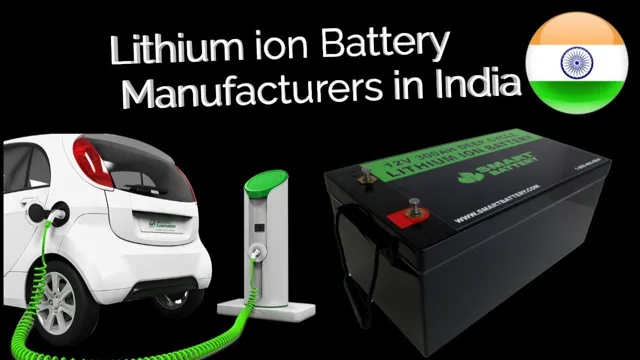
What are the Factors Affecting Electric Car Prices in India?
Electric Car Prices in India Electric cars have been making headlines in India lately, with more and more people considering them as an eco-friendly alternative to traditional gasoline-powered cars. But what are the factors that affect the prices of electric cars in India? The answer is complex and multifaceted. One of the most significant factors is the cost of battery production, which accounts for a large proportion of the vehicle’s total cost.
Moreover, the Indian government’s policies, such as subsidies, taxes, and import duties, significantly impact electric car prices in the country. Additionally, the brand and model of the electric car and its features, such as range, charging time, safety features, and luxury amenities, can also affect the price point. With the growing demand for electric cars in India, automakers are continuously working towards reducing costs while maintaining a high level of quality and performance.
In conclusion, understanding the factors that influence electric car prices in India is essential for making an informed decision when purchasing an electric vehicle.
Cost of Electric Car Batteries in India
The cost of electric car batteries in India can vary depending on various factors such as the type of car, battery capacity, and manufacturer. As of 2021, the cost of an electric car battery in India is approximately between INR 4 Lakhs to INR 8 Lakhs. However, it’s important to note that this cost is expected to come down in the near future as the Indian government has launched various initiatives to promote the adoption of electric vehicles.
In fact, the government is providing subsidies and incentives to the manufacturers of electric cars and their components including batteries. This, in turn, is making electric car batteries more affordable for consumers. With the rapid advancements in technology and the increasing demand for electric cars, we can expect the cost of electric car batteries in India to continue to reduce significantly in the coming years.
Average Cost of EV Batteries in India
Cost of Electric Car Batteries in India The cost of electric car batteries plays a crucial role in the adoption of electric vehicles in India. At present, the price of EV batteries in India ranges from around Rs. 10,000 to Rs.
20,000 per kWh of battery capacity. This translates to an average upfront cost of around Rs.
5 lakh for an EV battery pack with a capacity of 75-100 kWh. However, the cost of EV batteries in India is expected to drop significantly in the next few years due to ambitious government policies and growing demand for EVs. The Indian government has set a target of 30% electric vehicle penetration by 2030, which is expected to drive the demand for EVs and lower battery costs through economies of scale.
Moreover, domestic manufacturers and startups are investing heavily in battery research and development, which will further lower battery costs and improve their performance in the future. In conclusion, while the cost of electric car batteries in India may seem prohibitive at present, it is expected to decline in the near future, making electric vehicles a more affordable and practical transportation option.
Comparison of Battery Costs with Other Countries
The cost of electric car batteries in India is a hot topic in the country, as more and more people are becoming interested in buying electric vehicles. Currently, the cost of electric car batteries in India is slightly on the higher side when compared to other countries like China and the US. In India, the cost of lithium-ion batteries, which are the most commonly used batteries in electric vehicles, is around INR 15,000 to INR 60,000 per kWh.
However, the government is taking various measures to bring down the cost of electric car batteries in the country. The government has announced several incentives for electric vehicle manufacturers, such as exemptions in import duty, lowering of GST rates, and providing easy loans to these manufacturers. With these measures, the government is hopeful that the cost of electric car batteries in India will soon come down and make electric vehicles more affordable for the masses.
Electric car batteries in India are a key component in the adoption of electric vehicles in the country. With the rising awareness about the need for clean energy and sustainable transportation, the demand for electric vehicles is increasing rapidly. However, the high cost of electric car batteries is currently a significant obstacle for many consumers.
While the cost of electric car batteries in India is relatively high, the government’s efforts to reduce the costs, combined with technological advances in the manufacturing of batteries, are expected to drive down prices in the coming years. As a result, electric vehicles are likely to become more accessible and affordable to everyday consumers, helping to reduce the country’s carbon footprint and contribute to a cleaner and more sustainable future.
Factors Impacting Battery Costs in India
Electric car batteries have become a significant component in determining the cost of electric cars in India. Several factors have contributed to the high cost of electric car batteries in India, such as the high import duties imposed on lithium-ion batteries and their components. Additionally, India’s policies do not encourage the development of domestic battery manufacturing, which involves higher costs for research and development.
As a result, the cost of electric car batteries in India is relatively higher than other countries that have already established domestic battery manufacturing. However, with the ongoing push towards electric vehicles and supportive policies from the government, battery manufacturing in India is expected to grow, resulting in lowered battery costs. The initiatives such as ‘Make in India,’ ‘National Electric Mobility Mission Plan (NEMMP),’ and the ‘Faster Adoption and Manufacturing of (Hybrid &) Electric Vehicles (FAME) scheme’ are also expected to provide impetus to domestic battery manufacturing, making it more affordable in the long run.
Government Initiatives to Reduce EV Battery Costs
Electric vehicles (EVs) have seen significant growth in India, thanks to the government’s initiatives to reduce the cost of EV batteries. One of the most effective initiatives is the National Electric Mobility Mission Plan, which aims to make EVs more affordable by reducing the cost of EV batteries. The government has also established the Faster Adoption and Manufacturing of Electric Vehicles (FAME) program, which offers incentives to manufacturers to produce EVs with affordable batteries.
As a result of these initiatives, the cost of EV batteries has reduced by 50% in the last three years, making EVs more affordable for the Indian consumer. The success of these initiatives has led to a surge in the adoption of EVs in India, and the trend is set to continue in the future. With the government’s ongoing efforts to reduce the cost of EV batteries, it is only a matter of time until EVs become the norm in India.
FAME II Scheme
The FAME II scheme is a government initiative that aims to reduce the cost of electric vehicle (EV) batteries in India. The scheme provides incentives for EV manufacturers to locally produce batteries, which will help to bring down the cost of EVs and make them more affordable for the Indian population. The government has set a target of 30% electric vehicle penetration by 2030, and the FAME II scheme is a key part of achieving this.
By reducing the cost of EVs, the government hopes to encourage more people to switch to electric vehicles, which will help to reduce air pollution and improve the health of the population. The scheme is also expected to generate employment opportunities in the battery manufacturing industry, which is a growing sector in India. Overall, the FAME II scheme is an important step towards making electric vehicles a more accessible and viable option for the Indian market.
National Mission for Transformative Mobility and Battery Storage
The National Mission for Transformative Mobility and Battery Storage is a government initiative that aims to revolutionize the Indian automotive industry by shifting towards electric vehicles. One major challenge that the government faces in this endeavor is the cost of the EV batteries, which is currently much higher than that of fossil fuel-powered vehicles. To reduce these costs, the government has implemented several policies, including a reduction in GST rates and customs duty on EV components.
Additionally, the government is promoting the use of locally sourced raw materials and providing incentives for the establishment of battery manufacturing plants in the country. By taking these steps, the government hopes to make EVs more affordable and accessible to the masses, ultimately accelerating the transition towards cleaner mobility.
Conclusion
In conclusion, the cost of electric car batteries in India can vary widely depending on various factors such as the type of battery, the brand, and technological advancements. While some might argue that the high cost of these batteries is a significant disadvantage, it’s important to remember that electric vehicles are a greener and cleaner alternative to traditional gas-powered cars. As technology continues to advance, we can expect the cost of electric car batteries to decrease, making these vehicles even more accessible to the masses.
So, although you might have to pay a higher upfront cost for an electric car battery, in the long run, it’s a small price to pay for a brighter and cleaner future for generations to come.”
FAQs
What is the average cost of an electric car battery in India?
The average cost of an electric car battery in India ranges from Rs. 1.5 lakhs to Rs. 5 lakhs, depending on the brand and capacity of the battery.
How long does an electric car battery last in India?
The lifespan of an electric car battery in India largely depends on usage, maintenance, and the brand of the battery. Generally, most batteries last for around 5-8 years.
What type of electric car battery is used in India?
The two main types of electric car batteries used in India are lithium-ion batteries (Li-ion) and nickel-metal hydride batteries (NiMH). Li-ion batteries are more commonly used than NiMH batteries due to their high energy density, lower weight, and longer lifespan.
Can I replace my electric car battery in India?
Yes, it is possible to replace your electric car battery in India if it is damaged or has reached the end of its lifespan. However, the cost of battery replacement can be quite high, depending on the brand and capacity of the battery. It is recommended to consult with a certified service center before replacing your electric car battery.
